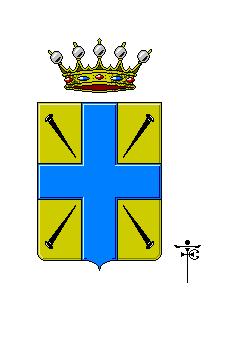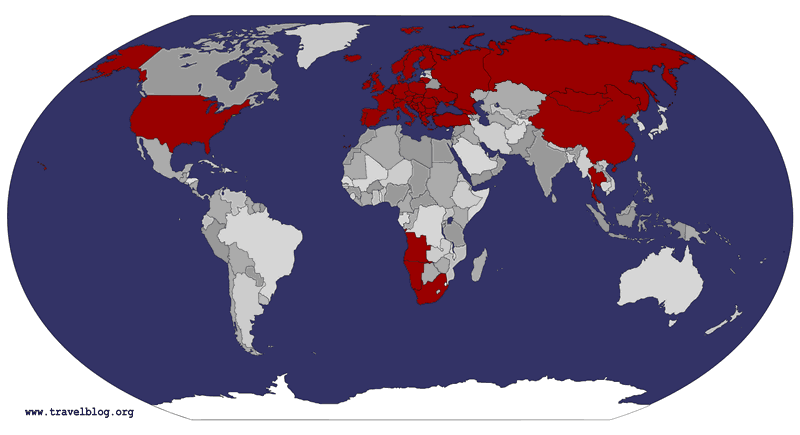My Albanian Speech
Excellencies,
Colleagues,
Ladies and Gentlemen,
On its road towards European integration, Albania lost much time. The reasons come from an inherited communist legacy and poverty, to regional conflicts and internal crisis. During the difficult years of transition, Albania had to face the challenges of turning an ineffective planned economy into a market economy with social responsibility, of creating a stable constitutional system, of regaining public confidence and social cohesion.
Between 1990 and 1992, Albania ended 46 years of Communist rule and established a multiparty democracy. This transition has proven challenging, as successive governments have tried to deal with high unemployment, widespread corruption, a challenging infrastructure, powerful organized crime networks, and combative political opponents. Although Albania's economy continues to grow, the country is still one of the poorest in Europe, hampered by a large informal economy and an inadequate energy and transportation infrastructure. Albania has played a largely helpful role in managing inter-ethnic tensions in south-eastern Europe, and is continuing to work towards joining NATO and the EU.
Ten European countries, sharing a common aspiration for integration, were admitted into the European Union in 2004. Albania, too, is pursuing the realization of the same aspiration.
The Albanian Government and society are engaged into a widespread European integration process, being fully committed to carrying out the necessary reforms. We have the political will and drive, to carry out these reforms. At a ceremony held in Luxembourg last summer, the Stabilization and Association Agreement between the European Community and its Member States, and the Republic of Albania, was signed. This shows that Albania is on the right way in the process towards European Integration and is determined to comply with European standards and democratic values.
Albania is working to strengthen the institutions and capacities of the central and local government, and to enhance the efficiency of the reforms. Albania has made significant progress in its democratic development since holding the first multiparty elections in 1991, but deficiencies still remain. So far, international observers judged elections to be largely free and fair, especially since the restoration of political stability following the collapse of pyramid schemes in 1997.
Following a period of instability due to internal quarrelling within the former ruling Socialist Party, the government went through a period of relative political stability. A number of significant new strategies and a new resource planning system were put in place, and the effectiveness of the Ministry of European Integration was highly improved. The 2005 election campaign, and the ensuing political polarization, used up a great deal of government energy and slowed the reform progress. In the 2005 parliamentary elections, the Democratic Party and its allies won a decisive victory on pledges of reducing crime and corruption, promoting economic growth, and decreasing the size of government. The parliamentary elections were lengthy and showed some shortcomings, but were conducted in a fundamentally sound manner. This election, and particularly the orderly transition of power, was considered an important step forward. The parliament has remained a real forum for political exchange. Significant changes to its internal organization have improved its functioning and steps were taken to enhance the coherence of new laws.
We are also truly convinced that the respect and protection of human rights and freedoms are the main pillars of a democratic society. The Government of the Republic of Albania has constantly demonstrated that it fully implements the standards laid down in the Council of Europe Conventions, as well as the relevant documents of regional organizations, such as the OSCE. It will continue to do so in the future as well. Albania has associated itself with the countries that are implementing a number of national strategies and programs that focus on specific population groups such as women, children, persons in need, minorities, etc.
On the road to European integration, our region still, is facing challenges such as the future of Kosovo. Albania greatly appreciates the recent democratic and integrated developments in Kosovo, thanks to the efforts of the people of Kosovo, its self-governing institutions and the activity of the UNMIK. The Albanian Government has the view that the time has come for a rapid and clear implementation of policy of standards and status. This would be the key to the solution of a number of other issues. We really hope that the question of the final status of Kosovo will find its final solution soon for the sake of the Kosovo people and for the whole region as well. In the meantime, we are convinced of the need to build a democratic, multiethnic, and multicultural society in Kosovo governed by the rule of law, mutual tolerance, and understanding.
The road towards European integration is not an easy one, but the results are rewarding. Countries in Central and Eastern Europe have proven that while it is possible to reach the final destination, the process can be as important as the event of joining itself.
During fifteen years of transition, Albania's history of relationship with the EU can be seen as a history of building a state of law, public order, justice, and infrastructure. We are fully aware that the key to integration process is to build a sustainable democracy that respects the institutions and the state of law. However, we will need the help of the European institutions in succeeding with that. The EU should be willing to give advice and offer assistance in any matter and help to speed up the process towards European Integration. Not to dismiss or delay the possible accession of Albania to the EU, due to unfounded fears of increasing unemployment in certain West European countries or possible threats of Muslim extremism.
I thank you for your attention.
Colleagues,
Ladies and Gentlemen,
On its road towards European integration, Albania lost much time. The reasons come from an inherited communist legacy and poverty, to regional conflicts and internal crisis. During the difficult years of transition, Albania had to face the challenges of turning an ineffective planned economy into a market economy with social responsibility, of creating a stable constitutional system, of regaining public confidence and social cohesion.
Between 1990 and 1992, Albania ended 46 years of Communist rule and established a multiparty democracy. This transition has proven challenging, as successive governments have tried to deal with high unemployment, widespread corruption, a challenging infrastructure, powerful organized crime networks, and combative political opponents. Although Albania's economy continues to grow, the country is still one of the poorest in Europe, hampered by a large informal economy and an inadequate energy and transportation infrastructure. Albania has played a largely helpful role in managing inter-ethnic tensions in south-eastern Europe, and is continuing to work towards joining NATO and the EU.
Ten European countries, sharing a common aspiration for integration, were admitted into the European Union in 2004. Albania, too, is pursuing the realization of the same aspiration.
The Albanian Government and society are engaged into a widespread European integration process, being fully committed to carrying out the necessary reforms. We have the political will and drive, to carry out these reforms. At a ceremony held in Luxembourg last summer, the Stabilization and Association Agreement between the European Community and its Member States, and the Republic of Albania, was signed. This shows that Albania is on the right way in the process towards European Integration and is determined to comply with European standards and democratic values.
Albania is working to strengthen the institutions and capacities of the central and local government, and to enhance the efficiency of the reforms. Albania has made significant progress in its democratic development since holding the first multiparty elections in 1991, but deficiencies still remain. So far, international observers judged elections to be largely free and fair, especially since the restoration of political stability following the collapse of pyramid schemes in 1997.
Following a period of instability due to internal quarrelling within the former ruling Socialist Party, the government went through a period of relative political stability. A number of significant new strategies and a new resource planning system were put in place, and the effectiveness of the Ministry of European Integration was highly improved. The 2005 election campaign, and the ensuing political polarization, used up a great deal of government energy and slowed the reform progress. In the 2005 parliamentary elections, the Democratic Party and its allies won a decisive victory on pledges of reducing crime and corruption, promoting economic growth, and decreasing the size of government. The parliamentary elections were lengthy and showed some shortcomings, but were conducted in a fundamentally sound manner. This election, and particularly the orderly transition of power, was considered an important step forward. The parliament has remained a real forum for political exchange. Significant changes to its internal organization have improved its functioning and steps were taken to enhance the coherence of new laws.
We are also truly convinced that the respect and protection of human rights and freedoms are the main pillars of a democratic society. The Government of the Republic of Albania has constantly demonstrated that it fully implements the standards laid down in the Council of Europe Conventions, as well as the relevant documents of regional organizations, such as the OSCE. It will continue to do so in the future as well. Albania has associated itself with the countries that are implementing a number of national strategies and programs that focus on specific population groups such as women, children, persons in need, minorities, etc.
On the road to European integration, our region still, is facing challenges such as the future of Kosovo. Albania greatly appreciates the recent democratic and integrated developments in Kosovo, thanks to the efforts of the people of Kosovo, its self-governing institutions and the activity of the UNMIK. The Albanian Government has the view that the time has come for a rapid and clear implementation of policy of standards and status. This would be the key to the solution of a number of other issues. We really hope that the question of the final status of Kosovo will find its final solution soon for the sake of the Kosovo people and for the whole region as well. In the meantime, we are convinced of the need to build a democratic, multiethnic, and multicultural society in Kosovo governed by the rule of law, mutual tolerance, and understanding.
The road towards European integration is not an easy one, but the results are rewarding. Countries in Central and Eastern Europe have proven that while it is possible to reach the final destination, the process can be as important as the event of joining itself.
During fifteen years of transition, Albania's history of relationship with the EU can be seen as a history of building a state of law, public order, justice, and infrastructure. We are fully aware that the key to integration process is to build a sustainable democracy that respects the institutions and the state of law. However, we will need the help of the European institutions in succeeding with that. The EU should be willing to give advice and offer assistance in any matter and help to speed up the process towards European Integration. Not to dismiss or delay the possible accession of Albania to the EU, due to unfounded fears of increasing unemployment in certain West European countries or possible threats of Muslim extremism.
I thank you for your attention.


No comments:
Post a Comment